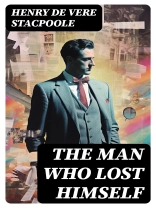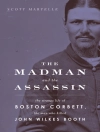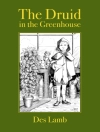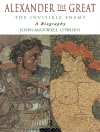In ‘The Man Who Lost Himself, ‘ Henry De Vere Stacpoole delves into the complexities of identity, exploring themes of self-discovery and existential uncertainty. Written in a lyrical prose style characteristic of the early 20th century, Stacpoole weaves a compelling narrative that examines the fragility of memory and the impact of societal expectations on personal identity. The story follows a man who, amidst the backdrop of an evolving world, grapples with his own sense of self, reflecting broader philosophical inquiries relevant to the period of Post-Victorian literature. Through intricate character development and evocative settings, Stacpoole invites readers to ponder the nature of existence and belonging. Henry De Vere Stacpoole, a notable figure of the literary scene, was influenced by his diverse background and experiences, which included living in various cultures. His works often showcase his keen observations of human nature and the existential crises faced by individuals. This particular novel emerged during a time when the questioning of identity was becoming increasingly significant, often mirroring Stacpoole’s own travels and introspections about life’s uncertainties. Readers of literary fiction that grapples with philosophical questions will find ‘The Man Who Lost Himself’ a thought-provoking and enriching experience. Stacpoole’s nuanced exploration of psychology and society resonates powerfully, offering profound insights into the universal search for self amidst a tumultuous landscape. This novel is a must-read for those interested in the intricacies of human identity and the condition of modern existence.
Sobre o autor
Henry De Vere Stacpoole (1863–1951) was a prolific Irish author, best known for his romance and adventure novels that captivated the audiences of the early 20th century. Stacpoole’s education in medicine largely influenced his literary career, intertwining his scientific background with his narrative mastery. A hallmark of his writing is the vivid description of exotic locales, born from his extensive travels as a ship’s doctor. The culmination of Stacpoole’s narrative technique is splendidly exhibited in his most famous work, ‘The Blue Lagoon’ (1908), which eclipsed his other novels in popularity, despite his extensive bibliography. ‘The Man Who Lost Himself’ (1918), another one of Stacpoole’s noteworthy creations, offers readers a journey through the theme of identity and transformation, which were recurrent elements in his works. His literary style often merged adventure with philosophical introspection, allowing readers to both escape and reflect. Although not as widely read today, Stacpoole’s contributions to early 20th-century literature provided groundwork for adventure and romance genres, and his works continue to be examined by scholars and enthusiasts of the period’s literary history.












